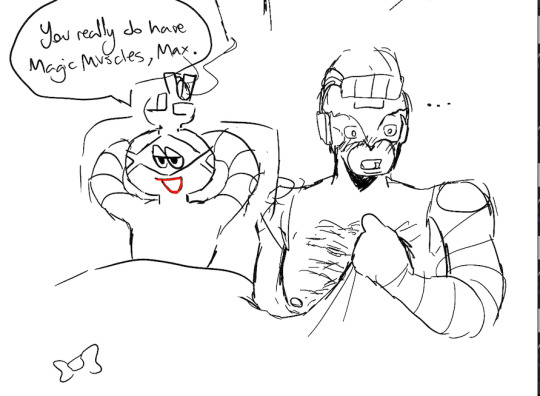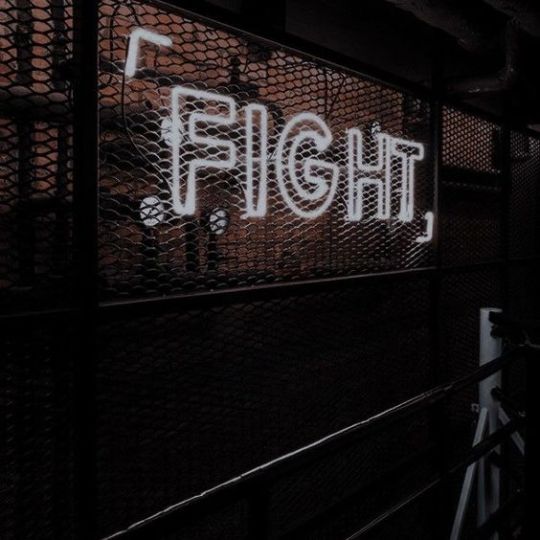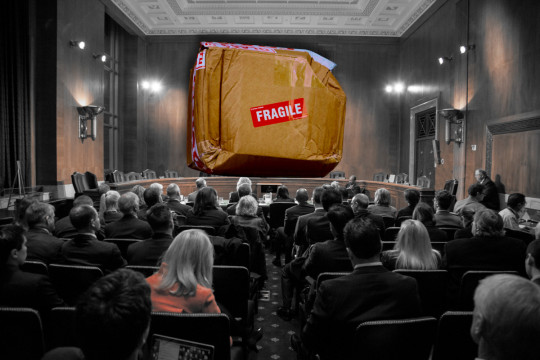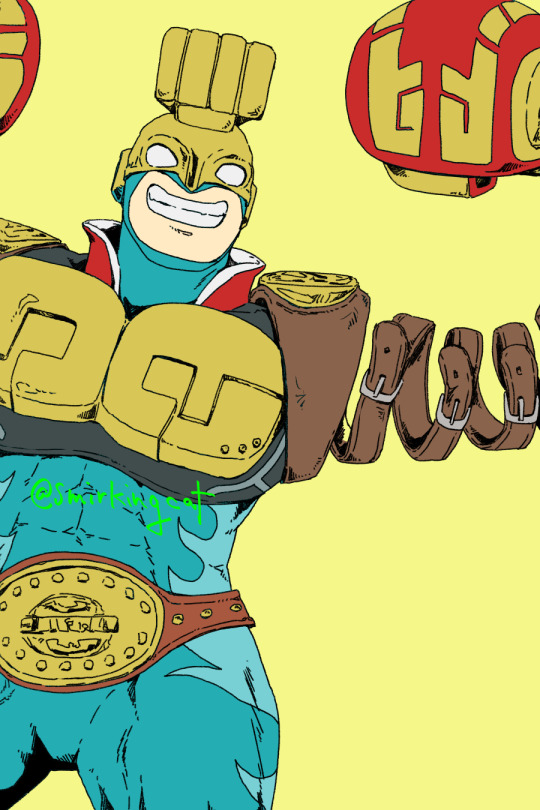#or max brass?
Text

HAPPY 6th ANNIVERSARY ARMS!!
I could go on and on about what an impact this game has had on my life and get super emotional but I'll just leave it short and say I LOVE YOU ARMS!
Here's to another year of the brainrot lol
#nintendo arms#arms game#armsiversary#arms nice#arm6#zuka doodles#drawings#arms#spring man#ribbon girl#ninjara#master mummy#min min#mechanica#twintelle#byte and barq#kid cobra#helix#max brass#lola pop#misango#springtron#dr coyle
103 notes
·
View notes
Text

happy belated birthday ARMS. this game changed my whole entire life. i love ARMS. this took me a while to make and i put my blood sweat and tears into every brushstroke. so please reblog it <3
#arms nintendo#arms game#nintendo arms#my art#arms#spring man#ribbon girl#ninjara#master mummy#min min#mechanica#twintelle#byte and barq#helix#kid cobra#max brass#lola pop#misango#springtron#dr. coyle#dr coyle#biff arms
72 notes
·
View notes
Text

The Brass Candlestick
Max Weber
Gouache and gold leaf collage on paper, 1914
19 notes
·
View notes
Text


9 notes
·
View notes
Text
Whenever I remember ARMS I get so sad that it failed :( such an interesting concept unfortunately beaten by its 3rd person shooter cousin Splatoon :(
Just such cool character designs too…
#nintendo#nintendo arms#ARMS#spring man#ribbon girl#min min#master mummy#byte & barq#twintelle#springtron#max brass#dr coyle#kid cobra#misango#ninjara#lola pop
3 notes
·
View notes
Text

#master mummy#max brass#arms nintendo#idk much about if these two have many canon interactions but what matters is i can lie to myself
11 notes
·
View notes
Text

long time no see tumblr lol
Happy armsiversary!!! happy birthday to the game i haven’t stopped thinking about for five years straight
#arms nintendo#nintendo arms#armsnice#spring man#ribbon girl#ninjara#mechanica#master mummy#min min#kid cobra#twintelle#byte and barq#helix#max brass#lola pop#misango#springtron#dr coyle
111 notes
·
View notes
Note
Alr bestie weddings over we can jump em now
Let’s gooo
20 notes
·
View notes
Text

some silly little holiday themed doodles I did recently
I had doing sticker designs in mind when drawing them but idk if I'll clean and finalize them (at least not rn)
#nintnedo arms#arms game#ribbon girl#kid cobra#ribboncobra#max brass#dr coyle#helix#idk if I should directly tag Spring Man and Biff for the snowmen ffff#arms#zuka doodles#drawings#the pic of Coyle is based off that one Grinch smile from the animated show#made myself laugh while drawing it#was like tabbed out of the drawings for a bit and then opened it again#and was zoomed in to the Coyle face#and just started laughing cause I was like “oh yeah this is actually really good”
26 notes
·
View notes
Text

did THAT feel like a cartoon?
30 notes
·
View notes
Text





KEIHIN M3P-0712-8GJ fitted on OWS Three way valve P3-40 big-K
THREE WAY VALVE P3-40
Electric coil marking:
Maker KEIHIN corp Japan
Type: M3P-0712-8GJ
SIZE: 8
MEDIA:AIR
AC 220V 50/60Hz
MAX:60c
Brass valve body marking:
P3-40
big-K
Hole Size :Approx 40mm
Qty 2pcs
Worldwide delivery
IDEAL DIESEL MARINE
E-MAIL: [email protected] (Primary)
[email protected] ( cc )
#KEIHIN M3P-0712-8GJ fitted on OWS Three way valve P3-40 big-K#THREE WAY VALVE P3-40#Electric coil marking:#Maker KEIHIN corp Japan#Type: M3P-0712-8GJ#SIZE: 8#MEDIA:AIR#AC 220V 50/60Hz#MAX:60c#Brass valve body marking:#P3-40#big-K#Hole Size :Approx 40mm#Qty 2pcs#KEIHIN M3P-0712-8GJ OWS Three way valve P3-40 big-K#KEIHIN M3P-0712-8GJ -P3-40 big-K#KEIHIN Three way valve P3-40 big-K#KEIHIN P3-40 big-K#KEIHIN Three way valve P3-40 big-K for 3 way valve
0 notes
Text
hot blooded |boxer!eddie munson x reader|



prompt: eddie's boxing at underground fight clubs to make money. after a victory match, he meets you at the bar. or the beginning of you and boxer!eddie.
contains: mean reader and mean eddie lol. mainly fluff. eddie munson au. happy one year!
Bloodied knuckles raised in the dim light of the bar, a triumphant yell mixed with a grunting of disappointment of those who bet against him when Eddie’s hand was raised, declared the winner. Henry Harrington fisted a wad of cash into Eddie’s hand; six thousand dollars, enough for the entry fee for the middleweight match at the end of the month.
Mr. Harrington snickered, clapping Eddie on the back. “Help yourself to anything at the bar, alright? On me tonight, Champ, you earned it.” And for a fleeting moment Eddie pictured busting his nose, knocking the smug man clean onto the concrete of the bar, letting his blood pool at his feet.
Instead, he shoved on the robe they gave, covered up his sticky, sweat soaked skin, blossoming with bruises and cuts he’d still hadn’t gotten to tend to. Maybe Max would still be up when he got back home, she could patch up the ones he couldn’t reach.
“Double Blanton’s on the rocks.” Eddie grumbled to the cocktail waitress in front of him, not bothering to meet her gaze as he unwrapped his tape from his knuckles.
She didn’t move. Electric red nails on her hip, the others drumming against the mahogany of the bar. Eddie lifted his gaze, lids throbbing with dull pain that was just beginning to set in. “What?”
“You’re bleeding.” Your eyes rolled over his frame, stopping at the cut on his jaw, dripping onto his robe, crimson droplets on the bar.
“Yeah.” Eddie clicked with annoyance. “No shit. Double Blanton’s-”
“-You’re bleeding all over my bar.” Your nail jabbed onto the counter, next to the splotches of blood dripping there.
Eddie blinked, unimpressed, annoyed. “Can you make me my fuckin’ drink or not?” You don’t move, staring at him still, nails still clicking against the counter.
“For fucksake,” Eddie huffs, teeth gritting, reaching over the edge of the bar to swipe the napkins off from your station. Palm slapping on the counter, wiping up the small spot. “There. Happy? Good? Can I get my fuckin’ drink now?”
Pushing up from your stance, you swiped the glass from the clean stack, setting it on the counter. Eddie huffed, slumping back in his chair. He should’ve just gone home, he bristled, familiar agitating heat rising in his chest, clenching his fists.
“Harrington’s tab?” You lifted your gaze to his, yanking the cork out of the bottle by the brass horse.
Eddie’s steely gaze met yours. “What?”
“Harrington’s tab?” You repeated, slower, tone teetering on an edge. “You’re on Harrington’s tab, correct?” You huffed, nodding down towards the man at the end of the bar.
“Yeah.” Eddie grunted.
You rolled your eyes, a heavy pour of the bourbon you didn’t bother to measure. “The fuck is your problem?” Eddie’s palm slapped the bar, an echoing of a hit that the people next to him scurrying away. “Are you just a bitch for fun or do you have something against me?”
“You came bleeding all over my bar,” You scoffed, brow raised in a dangerously demanding way. “Don’t bother to ask for a napkin, or even acknowledge me, really. And I’m a bitch?”
Eddie’s tongue rolled over the front of his teeth, knee bouncing furiously under him. “Sorry, I’m not feeling up to small talk. I just got done gettin’ the shit knocked outta me for six rounds. Did you miss that, sweetheart? Not see all the fuckin’ people in the middle of the room?”
“No, I was a little busy.” You were quick, response rolling off your tongue in a fiery whip of an answer easily. “Busy working.”
“Yeah? What the fuck do you think I was doin’?” Eddie scoffed. “Holding a fuckin’ tea party for the Sunday Social over there? I was working too.”
“Working?” You snort, rolling your eyes again. Eddie’s teeth clench. “You call that working?”
“I got paid.” Eddie hissed. “What would you call it? Since you seem to know everything?”
“Not enough money in the world to make me do that for them.” You narrow your eyes at him. “Hardly call that working, it’s so demeaning.”
“Demeaning,” Eddie repeated, rolling his eyes. “I provide entertainment, sweetheart. Same as you do, I’m sure.” He nodded down towards your tiny dress of a uniform.
“Entertainment? That’s entertaining?” You nodded towards the ring.
“Yeah, it is. Boxing? A lot of people find it entertaining. Thought you would know that.” Eddie snapped, viscous, defensive.
“Watching two grown men beat the shit out of each other, so these other grown men can bet on you like horses?” You scoffed, rolling your eyes with a sneer. “No, can’t say that’s very entertaining to me.”
“So why are you here then, huh?” Eddie scoffed, jaw clenching in irritation. “Just here for your wonderful personality?”
Your lips twitched, the fainting of a smile, surprising Eddie. “Something like that.” Your lips rolled, twisting back to their resting snarl. “Here for the same reason you are, I guess.” You set the glass on a black napkin, sliding it over to Eddie.
“Yeah, why’s that?”
You cut your eyes towards Mr. Harrington, loudly talking and howling in laughter at the other end of the bar. “Money’s good. Right?” Your eyes squint, nearly in challenge.
“Let me know if you need anything else.” You purred, throwing a wink in his direction. Eddie’s head was spinning, and not only from all the punches he’d taken.
He blamed it on his spinning head clouding his thoughts when he waved you over again, ordered another. And another. And a final one. When his head was swimming, mind a little clouded, nerves a lot calmer, he called you over again.
“Another?” Your brow raised, snagging his empty glass off the counter.
“No.” Eddie shook his head, the ache in his knuckles starting to set in. “What if it wasn’t here that I was fighting?”
“What?” You scoffed. “What are you talking about?”
“You said it was demeaning in here.” Eddie’s finger jabbed the counter for emphasis. “What if it wasn’t here?”
You squinted at him, lips pulling in a line that had his heart skipping. “Are you drunk?” Your voice fell flat, unamused. “Do you need me to call you a ride home-”
“-If it was at a real place.” Eddie continued, eyes never leaving yours, an intensity in them that started and intrigued you. “A real match at a real rink with real people. Nobody betting, just two guys fighting for a title. Would it be demeaning then?”
You paused, watching him carefully, studying him nearly. “I guess not.” You answered cooly, level and calmly.
“So you’d watch that then?”
“What?” You snarled. “Are you alright? Do you need me to call someone, or-”
“-Would you come watch me fight if it was at a real place?” Eddie asked, eyes narrowed in the same way they were before, burning you right to your very core. “In Bloomington in a few weeks.”
Your fingers pressed into your hip, willing yourself to stay composed, not falter though your heart skipped at his ask. “Maybe.” You sighed sharply. “I still don’t get the whole beating each other for fun thing-”
“-You don’t have to.” Eddie rolled his eyes, lighter this time, more playful. “Thanks for the drink.” Eddie pushed his chair back, groaning lowly when he pulled himself out of the bar stool, body stiff and tight. “Sorry for bleeding all over your bar.”
You bit back a smile, fighting the way your lips twitched, tracking him with your eyes. “No problem, Champ.” You quipped, eyes flashing in a daring way that had Eddie smirking, shaking his head.
“See you around.” Eddie waved, one last look over his shoulder that had you burning, turning to empty his glass, hoping to hide your fluster.
You were shocked the next day when two tickets in an envelope were waiting for you in the office, Mr. Harrington’s exaggerated tone about how much Eddie liked you. And he must have, you decided, looking at the small note that had his phone number scribbled at the bottom.
Eddie never heard back from you, let it slip his mind in the next weeks of training. Of course you hadn’t come, why would you have? You made your opinions abundantly clear to him that night.
Still, he was shocked to see you, in the sea of the crowd, sitting in the row by his corner, arms wrapped around your torso, looking a little more than unsure. You even waved at him, small and shy, and Eddie was sure his cheeks were going to split with how wide he smiled.
He invited you back to his locker room after he won, a victory Camel hanging from his busted lip, torso still covered in a sheen of sweat. You had no issues this time when the blood from his busted lip dripped on your sneakers, when it smeared over your own lips when he kissed you, pressed against the cement walls, bruised knuckles and fingers in your hair.
#oneforthemunny#munnytalks#munnysonederful#boxer!eddie munson#boxer!eddie#boxer!eddie munson x reader#eddie munson x fem!reader fluff#eddie x fem!reader#eddie munson x female reader#eddie munson x fem!reader smut#eddie munson x fem!reader#eddie munson au#eddie munson au#eddie x reader#eddie munson x you#eddie munson fic#eddie munson fluff#oneforthemunny blurbs#eddie munson blurb#eddie stranger things#eddie my love <3#eddie munson
640 notes
·
View notes
Text
Conspiratorialism and the epistemological crisis

I'm on tour with my new, nationally bestselling novel The Bezzle! Catch me next weekend (Mar 30/31) in ANAHEIM at WONDERCON, then in Boston with Randall "XKCD" Munroe! (Apr 11), then Providence (Apr 12), and beyond!

Last year, Ed Pierson was supposed to fly from Seattle to New Jersey on Alaska Airlines. He boarded his flight, but then he had an urgent discussion with the flight attendant, explaining that as a former senior Boeing engineer, he'd specifically requested that flight because the aircraft wasn't a 737 Max:
https://www.cnn.com/travel/boeing-737-max-passenger-boycott/index.html
But for operational reasons, Alaska had switched out the equipment on the flight and there he was on a 737 Max, about to travel cross-continent, and he didn't feel safe doing so. He demanded to be let off the flight. His bags were offloaded and he walked back up the jetbridge after telling the spooked flight attendant, "I can’t go into detail right now, but I wasn’t planning on flying the Max, and I want to get off the plane."
Boeing, of course, is a flying disaster that was years in the making. Its planes have been falling out of the sky since 2019. Floods of whistleblowers have come forward to say its aircraft are unsafe. Pierson's not the only Boeing employee to state – both on and off the record – that he wouldn't fly on a specific model of Boeing aircraft, or, in some cases any recent Boeing aircraft:
https://pluralistic.net/2024/01/22/anything-that-cant-go-on-forever/#will-eventually-stop
And yet, for years, Boeing's regulators have allowed the company to keep turning out planes that keep turning out lemons. This is a pretty frightening situation, to say the least. I'm not an aerospace engineer, I'm not an aircraft safety inspector, but every time I book a flight, I have to make a decision about whether to trust Boeing's assurances that I can safely board one of its planes without dying.
In an ideal world, I wouldn't even have to think about this. I'd be able to trust that publicly accountable regulators were on the job, making sure that airplanes were airworthy. "Caveat emptor" is no way to run a civilian aviation system.
But even though I don't have the specialized expertise needed to assess the airworthiness of Boeing planes, I do have the much more general expertise needed to assess the trustworthiness of Boeing's regulator. The FAA has spent years deferring to Boeing, allowing it to self-certify that its aircraft were safe. Even when these assurances led to the death of hundreds of people, the FAA continued to allow Boeing to mark its own homework:
https://www.youtube.com/watch?v=Q8oCilY4szc
What's more, the FAA boss who presided over those hundreds of deaths was an ex-Boeing lobbyist, whom Trump subsequently appointed to run Boeing's oversight. He's not the only ex-insider who ended up a regulator, and there's plenty of ex-regulators now on Boeing's payroll:
https://therevolvingdoorproject.org/boeing-debacle-shows-need-to-investigate-trump-era-corruption/
You don't have to be an aviation expert to understand that companies have conflicts of interest when it comes to certifying their own products. "Market forces" aren't going to keep Boeing from shipping defective products, because the company's top brass are more worried about cashing out with this quarter's massive stock buybacks than they are about their successors' ability to manage the PR storm or Congressional hearings after their greed kills hundreds and hundreds of people.
You also don't have to be an aviation expert to understand that these conflicts persist even when a Boeing insider leaves the company to work for its regulators, or vice-versa. A regulator who anticipates a giant signing bonus from Boeing after their term in office, or a an ex-Boeing exec who holds millions in Boeing stock has an irreconcilable conflict of interest that will make it very hard – perhaps impossible – for them to hold the company to account when it trades safety for profit.
It's not just Boeing customers who feel justifiably anxious about trusting a system with such obvious conflicts of interest: Boeing's own executives, lobbyists and lawyers also refuse to participate in similarly flawed systems of oversight and conflict resolution. If Boeing was sued by its shareholders and the judge was also a pissed off Boeing shareholder, they would demand a recusal. If Boeing was looking for outside counsel to represent it in a liability suit brought by the family of one of its murder victims, they wouldn't hire the firm that was suing them – not even if that firm promised to be fair. If a Boeing executive's spouse sued for divorce, that exec wouldn't use the same lawyer as their soon-to-be-ex.
Sure, it takes specialized knowledge and training to be a lawyer, a judge, or an aircraft safety inspector. But anyone can look at the system those experts work in and spot its glaring defects. In other words, while acquiring expertise is hard, it's much easier to spot weaknesses in the process by which that expertise affects the world around us.
And therein lies the problem: aviation isn't the only technically complex, potentially lethal, and utterly, obviously untrustworthy system we all have to navigate. How about the building safety codes that governed the structure you're in right now? Plenty of people have blithely assumed that structural engineers carefully designed those standards, and that these standards were diligently upheld, only to discover in tragic, ghastly ways that this was wrong:
https://www.bbc.com/news/64568826
There are dozens – hundreds! – of life-or-death, highly technical questions you have to resolve every day just to survive. Should you trust the antilock braking firmware in your car? How about the food hygiene rules in the factories that produced the food in your shopping cart? Or the kitchen that made the pizza that was just delivered? Is your kid's school teaching them well, or will they grow up to be ignoramuses and thus economic roadkill?
Hell, even if I never get into another Boeing aircraft, I live in the approach path for Burbank airport, where Southwest lands 50+ Boeing flights every day. How can I be sure that the next Boeing 737 Max that falls out of the sky won't land on my roof?
This is the epistemological crisis we're living through today. Epistemology is the process by which we know things. The whole point of a transparent, democratically accountable process for expert technical deliberation is to resolve the epistemological challenge of making good choices about all of these life-or-death questions. Even the smartest person among us can't learn to evaluate all those questions, but we can all look at the process by which these questions are answered and draw conclusions about its soundness.
Is the process public? Are the people in charge of it forthright? Do they have conflicts of interest, and, if so, do they sit out any decision that gives even the appearance of impropriety? If new evidence comes to light – like, say, a horrific disaster – is there a way to re-open the process and change the rules?
The actual technical details might be a black box for us, opaque and indecipherable. But the box itself can be easily observed: is it made of sturdy material? Does it have sharp corners and clean lines? Or is it flimsy, irregular and torn? We don't have to know anything about the box's contents to conclude that we don't trust the box.
For example: we may not be experts in chemical engineering or water safety, but we can tell when a regulator is on the ball on these issues. Back in 2019, the West Virginia Department of Environmental Protection sought comment on its water safety regs. Dow Chemical – the largest corporation in the state's largest industry – filed comments arguing that WV should have lower standards for chemical contamination in its drinking water.
Now, I'm perfectly prepared to believe that there are safe levels of chemical runoff in the water supply. There's a lot of water in the water supply, after all, and "the dose makes the poison." What's more, I use the products whose manufacture results in that chemical waste. I want them to be made safely, but I do want them to be made – for one thing, the next time I have surgery, I want the anesthesiologist to start an IV with fresh, sterile plastic tubing.
And I'm not a chemist, let alone a water chemist. Neither am I a toxicologist. There are aspects of this debate I am totally unqualified to assess. Nevertheless, I think the WV process was a bad one, and here's why:
https://www.wvma.com/press/wvma-news/4244-wvma-statement-on-human-health-criteria-development
That's Dow's comment to the regulator (as proffered by its mouthpiece, the WV Manufacturers' Association, which it dominates). In that comment, Dow argues that West Virginians safely can absorb more poison than other Americans, because the people of West Virginia are fatter than other Americans, and so they have more tissue and thus a better ratio of poison to person than the typical American. But they don't stop there! They also say that West Virginians don't drink as much water as their out-of-state cousins, preferring to drink beer instead, so even if their water is more toxic, they'll be drinking less of it:
https://washingtonmonthly.com/2019/03/14/the-real-elitists-looking-down-on-trump-voters/
Even without any expertise in toxicology or water chemistry, I can tell that these are bullshit answers. The fact that the WV regulator accepted these comments tells me that they're not a good regulator. I was in WV last year to give a talk, and I didn't drink the tap water.
It's totally reasonable for non-experts to reject the conclusions of experts when the process by which those experts resolve their disagreements is obviously corrupt and irredeemably flawed. But some refusals carry higher costs – both for the refuseniks and the people around them – than my switching to bottled water when I was in Charleston.
Take vaccine denial (or "hesitancy"). Many people greeted the advent of an extremely rapid, high-tech covid vaccine with dread and mistrust. They argued that the pharma industry was dominated by corrupt, greedy corporations that routinely put their profits ahead of the public's safety, and that regulators, in Big Pharma's pocket, let them get away with mass murder.
The thing is, all that is true. Look, I've had five covid vaccinations, but not because I trust the pharma industry. I've had direct experience of how pharma sacrifices safety on greed's altar, and narrowly avoided harm myself. I have had chronic pain problems my whole life, and they've gotten worse every year. When my daughter was on the way, I decided this was going to get in the way of my ability to parent – I wanted to be able to carry her for long stretches! – and so I started aggressively pursuing the pain treatments I'd given up on many years before.
My journey led me to many specialists – physios, dieticians, rehab specialists, neurologists, surgeons – and I tried many, many therapies. Luckily, my wife had private insurance – we were in the UK then – and I could go to just about any doctor that seemed promising. That's how I found myself in the offices of a Harley Street quack, a prominent pain specialist, who had great news for me: it turned out that opioids were way safer than had previously been thought, and I could just take opioids every day and night for the rest of my life without any serious risk of addiction. It would be fine.
This sounded wrong to me. I'd lost several friends to overdoses, and watched others spiral into miserable lives as they struggled with addiction. So I "did my own research." Despite not having a background in chemistry, biology, neurology or pharmacology, I struggled through papers and read commentary and came to the conclusion that opioids weren't safe at all. Rather, corrupt billionaire pharma owners like the Sackler family had colluded with their regulators to risk the lives of millions by pushing falsified research that was finding publication in some of the most respected, peer-reviewed journals in the world.
I became an opioid denier, in other words.
I decided, based on my own research, that the experts were wrong, and that they were wrong for corrupt reasons, and that I couldn't trust their advice.
When anti-vaxxers decried the covid vaccines, they said things that were – in form at least – indistinguishable from the things I'd been saying 15 years earlier, when I decided to ignore my doctor's advice and throw away my medication on the grounds that it would probably harm me.
For me, faith in vaccines didn't come from a broad, newfound trust in the pharmaceutical system: rather, I judged that there was so much scrutiny on these new medications that it would overwhelm even pharma's ability to corruptly continue to sell a medication that they secretly knew to be harmful, as they'd done so many times before:
https://www.npr.org/2007/11/10/5470430/timeline-the-rise-and-fall-of-vioxx
But many of my peers had a different take on anti-vaxxers: for these friends and colleagues, anti-vaxxers were being foolish. Surprisingly, these people I'd long felt myself in broad agreement with began to defend the pharmaceutical system and its regulators. Once they saw that anti-vaxx was a wedge issue championed by right-wing culture war shitheads, they became not just pro-vaccine, but pro-pharma.
There's a name for this phenomenon: "schismogenesis." That's when you decide how you feel about an issue based on who supports it. Think of self-described "progressives" who became cheerleaders for the America's cruel, ruthless and lawless "intelligence community" when it seemed that US spooks were bent on Trump's ouster:
https://pluralistic.net/2021/12/18/schizmogenesis/
The fact that the FBI didn't like Trump didn't make them allies of progressive causes. This was and is the same entity that (among other things) tried to blackmail Martin Luther King, Jr into killing himself:
https://en.wikipedia.org/wiki/FBI%E2%80%93King_suicide_letter
But schismogenesis isn't merely a reactionary way of flip-flopping on issues based on reflexive enmity. It's actually a reasonable epistemological tactic: in a world where there are more issues you need to be clear on than you can possibly inform yourself about, you need some shortcuts. One shortcut – a shortcut that's failing – is to say, "Well, I'll provisionally believe whatever the expert system tells me is true." Another shortcut is, "I will provisionally disbelieve in whatever the people I know to act in bad faith are saying is true." That is, "schismogenesis."
Schismogenesis isn't a great tactic. It would be far better if we had a set of institutions we could all largely trust – if the black boxes where expert debate took place were sturdy, rectilinear and sharp-cornered.
But they're not. They're just not. Our regulatory process sucks. Corporate concentration makes it trivial for cartels to capture their regulators and steer them to conclusions that benefit corporate shareholders even if that means visiting enormous harm – even mass death – on the public:
https://pluralistic.net/2022/06/05/regulatory-capture/
No one hates Big Tech more than I do, but many of my co-belligerents in the war on Big Tech believe that the rise of conspiratorialism can be laid at tech platforms' feet. They say that Big Tech boasts of how good they are at algorithmically manipulating our beliefs, and attribute Qanons, flat earthers, and other outlandish conspiratorial cults to the misuse off those algorithms.
"We built a Big Data mind-control ray" is one of those extraordinary claims that requires extraordinary evidence. But the evidence for Big Tech's persuasion machines is very poor: mostly, it consists of tech platforms' own boasts to potential investors and customers for their advertising products. "We can change peoples' minds" has long been the boast of advertising companies, and it's clear that they can change the minds of customers for advertising.
Think of department store mogul John Wanamaker, who famously said "Half the money I spend on advertising is wasted; the trouble is I don't know which half." Today – thanks to commercial surveillance – we know that the true proportion of wasted advertising spending is more like 99.9%. Advertising agencies may be really good at convincing John Wanamaker and his successors, through prolonged, personal, intense selling – but that doesn't mean they're able to sell so efficiently to the rest of us with mass banner ads or spambots:
http://pluralistic.net/HowToDestroySurveillanceCapitalism
In other words, the fact that Facebook claims it is really good at persuasion doesn't mean that it's true. Just like the AI companies who claim their chatbots can do your job: they are much better at convincing your boss (who is insatiably horny for firing workers) than they are at actually producing an algorithm that can replace you. What's more, their profitability relies far more on convincing a rich, credulous business executive that their product works than it does on actually delivering a working product.
Now, I do think that Facebook and other tech giants play an important role in the rise of conspiratorial beliefs. However, that role isn't using algorithms to persuade people to mistrust our institutions. Rather Big Tech – like other corporate cartels – has so corrupted our regulatory system that they make trusting our institutions irrational.
Think of federal privacy law. The last time the US got a new federal consumer privacy law was in 1988, when Congress passed the Video Privacy Protection Act, a law that prohibits video store clerks from leaking your VHS rental history:
https://www.eff.org/deeplinks/2008/07/why-vppa-protects-youtube-and-viacom-employees
It's been a minute. There are very obvious privacy concerns haunting Americans, related to those tech giants, and yet the closest Congress can come to doing something about it is to attempt the forced sale of the sole Chinese tech giant with a US footprint to a US company, to ensure that its rampant privacy violations are conducted by our fellow Americans, and to force Chinese spies to buy their surveillance data on millions of Americans in the lawless, reckless swamp of US data-brokerages:
https://www.npr.org/2024/03/14/1238435508/tiktok-ban-bill-congress-china
For millions of Americans – especially younger Americans – the failure to pass (or even introduce!) a federal privacy law proves that our institutions can't be trusted. They're right:
https://www.tiktok.com/@pearlmania500/video/7345961470548512043
Occam's Razor cautions us to seek the simplest explanation for the phenomena we see in the world around us. There's a much simpler explanation for why people believe conspiracy theories they encounter online than the idea that the one time Facebook is telling the truth is when they're boasting about how well their products work – especially given the undeniable fact that everyone else who ever claimed to have perfected mind-control was a fantasist or a liar, from Rasputin to MK-ULTRA to pick-up artists.
Maybe people believe in conspiracy theories because they have hundreds of life-or-death decisions to make every day, and the institutions that are supposed to make that possible keep proving that they can't be trusted. Nevertheless, those decisions have to be made, and so something needs to fill the epistemological void left by the manifest unsoundness of the black box where the decisions get made.
For many people – millions – the thing that fills the black box is conspiracy fantasies. It's true that tech makes finding these conspiracy fantasies easier than ever, and it's true that tech makes forming communities of conspiratorial belief easier, too. But the vulnerability to conspiratorialism that algorithms identify and target people based on isn't a function of Big Data. It's a function of corruption – of life in a world in which real conspiracies (to steal your wages, or let rich people escape the consequences of their crimes, or sacrifice your safety to protect large firms' profits) are everywhere.
Progressives – which is to say, the coalition of liberals and leftists, in which liberals are the senior partners and spokespeople who control the Overton Window – used to identify and decry these conspiracies. But as right wing "populists" declared their opposition to these conspiracies – when Trump damned free trade and the mainstream media as tools of the ruling class – progressives leaned into schismogenesis and declared their vocal support for these old enemies of progress.
This is the crux of Naomi Klein's brilliant 2023 book Doppelganger: that as the progressive coalition started supporting these unworthy and broken institutions, the right spun up "mirror world" versions of their critique, distorted versions that focus on scapegoating vulnerable groups rather than fighting unworthy institutions:
https://pluralistic.net/2023/09/05/not-that-naomi/#if-the-naomi-be-klein-youre-doing-just-fine
This is a long tradition in politics: hundreds of years ago, some leftists branded antisemitism "the socialism of fools." Rather than condemning the system's embrace of the finance sector and its wealthy beneficiaries, anti-semites blame a disfavored group of people – people who are just as likely as anyone to suffer under the system:
https://en.wikipedia.org/wiki/Antisemitism_is_the_socialism_of_fools
It's an ugly, shallow, cartoon version of socialism's measured and comprehensive analysis of how the class system actually works and why it's so harmful to everyone except a tiny elite. Literally cartoonish: the shadow-world version of socialism co-opts and simplifies the iconography of class struggle. And schismogenesis – "if the right likes this, I don't" – sends "progressive" scolds after anyone who dares to criticize finance as the crux of our world's problems as popularizing "antisemetic dog-whistles."
This is the problem with "horseshoe theory" – the idea that the far right and the far left bend all the way around to meet each other:
https://pluralistic.net/2024/02/26/horsehoe-crab/#substantive-disagreement
When the right criticizes pharma companies, they tell us to "do our own research" (e.g. ignore the systemic problems of people being forced to work under dangerous conditions during a pandemic while individually assessing conflicting claims about vaccine safety, ideally landing on buying "supplements" from a grifter). When the left criticizes pharma, it's to argue for universal access to medicine and vigorous public oversight of pharma companies. These aren't the same thing:
https://pluralistic.net/2021/05/25/the-other-shoe-drops/#quid-pro-quo
Long before opportunistic right wing politicians realized they could get mileage out of pointing at the terrifying epistemological crisis of trying to make good choices in an age of institutions that can't be trusted, the left was sounding the alarm. Conspiratorialism – the fracturing of our shared reality – is a serious problem, weakening our ability to respond effectively to endless disasters of the polycrisis.
But by blaming the problem of conspiratorialism on the credulity of believers (rather than the deserved disrepute of the institutions they have lost faith in) we adopt the logic of the right: "conspiratorialism is a problem of individuals believing wrong things," rather than "a system that makes wrong explanations credible – and a schismogenic insistence that these institutions are sound and trustworthy."

If you'd like an essay-formatted version of this post to read or share, here's a link to it on pluralistic.net, my surveillance-free, ad-free, tracker-free blog:
https://pluralistic.net/2024/03/25/black-boxes/#when-you-know-you-know

Image:
Nuclear Regulatory Commission (modified)
https://www.flickr.com/photos/nrcgov/15993154185/
meanwell-packaging.co.uk
https://www.flickr.com/photos/195311218@N08/52159853896
CC BY 2.0
https://creativecommons.org/licenses/by/2.0/
#pluralistic#conspiratorialism#epistemology#epistemological crisis#mind control rays#opioid denial#vaccine denial#regulatory capture#boeing#corruption#inequality#monopoly#apple#dma#eu
290 notes
·
View notes
Note
I desperately need MORE background on how hound became the vicious beast (that I love just the way he is) and how Makarov tamed him!
Please

It's kinda hard to come up with background when I literally made hound on the fly lol, I didn't plan to give him any backstory and that blurb about being betrayed by price just came at the last moment.
But here's my current ideas:
CW:SFW ish HUGE SPOILERS for Hound's backstory (not cannon yet but the major themes), angst, discussion of torture, conditioning, SA, and Hound just having a very bad time.
Hound already had behavioural/aggression problems when he joined the military (the reasons for which are left open for the reader to imagine). Price pissed off some top brass officer and got Hound dumped on him as punishment and because no one else wanted Hound. But Price figured out that all Hound needed was a firm hand from someone he could respect, and with Hound, respect was a hard thing to earn. But Price earned it and in turn got himself the most loyal Sargent he'd ever seen.
Now for the angsty Makarov bit.
Hound was loyal as hell to Price when he thought he would be saved. It took Makarov like a solid year just to make small dents in Hound's will. Since Hound didn't know Russian, he'd get annoyed at the commands Makarov used, leading to more beatings. This was around the time Makarov started using shock collars and really leaned into turning Hound into his dog.
The whole conditioning thing was similar to how cult indoctrination works, Makarov made himself look like the only 'safe' source of comfort Hound had. He especially liked making Hound fight in a pit, be it putting him against actual dogs, people trying to join Konni, or other Konni members, with the prize being that whichever soldier won would get to use Hound however they wanted. And while Hound may be big (hc Hound around Konig's hight/whatever the max height for being in the army is), being regularly beaten, starved and sleep deprived meant he lost more fights against the soldiers than he won.
This made it easy for Makarov to effectively 'save' Hound, rough orders making his soldiers stop, giving Hound soft touches and a low soothing voice to listen to while he lay on the floor covered in blood, gore, cum, and god knows what else, just trying to recover. And Hound's brain hated it, was disgusted by the touch, but his body craved any form of comfort it could get regardless who it came from.
The real conditioning began when after a year in captivity the files for Hound's mission were released, and had been rewritten to make him K.I.A. and a traitor. And they were official documents too (Makarov had eyes and ears everywhere, including the C.I.A). Makarov had been putting the idea that Price had betrayed Hound for a while, so those docs just confirmed it.
Hound became a lot more anger prone and aggressive after the betrayal, going back to his old ways before Price became his CO, something Makarov played into.
Violence became both a coping mechanism and a way to survive; the more violently he fought and killed in the fighting ring, the better the rewards he would get (more food, more rest, more of Makarov's affection to distract him from what was happening), the stronger he would get and the more his body would recover, the more violently he could fight. Leading to a type of cycle where physically getting healthier turned him more violent.
Makarov was very keen on training Hound, taking away the small comforts as quickly as he gave them if Hound stepped one foot out of line, steadily conditioning him to be eager for his touch, his praise, his affection, to want to pleasure him and silence the parts of Hound's brain that begged him to stop.
In six months or so, Hound was already kneeling at Makarov's feet, head tilted back so Makarov could cut his initials into Hound's throat, desperate to have a collar wrapped around his neck, to belong to someone who wouldn't betray him like Price did.
And in another six, Hound was utterly devoted to Makarov, carrying out any orders given with extreme precision and violence all in the hopes of just getting a scrap of his attention.
Or something like that. The thing I like about reboot Makarov is how charismatic and tactical he is in comparison to the unhinged Makarov from the old series. This one gives me like cult leader vibes, which is why I think he would have been able to condition hound into being his. Makarov values loyalty and saw how loyal hound was to Price, so sought to have the same.
#gnome's tea break#gnome correspondence#cod mw2#vladimir makarov x male reader#vladimir makarov#good dog fic#Hound-reader#Hound-reader's backstory more or less#nothing cannon yet its just the first idea that came to mind#subject to change
216 notes
·
View notes
Text
why the wedding scene in The Sound of Music (1965) is perfect:
1. Julie is divinely beautiful with her subtle makeup and simple dress and the set is lit such that she literally looks like a glowing angel. Slay Queen.
2. The way it opens with the sisters helping her get ready, much like a bride's actual sisters would, because they really are like her family of origin! And the Mother Abbess giving her the blessing to go forth and joyfully embrace her true calling 😭
3. The organ introduction with all the stops out slaps and I would really love to incorporate it into something in my own church organ playing if it wasn't so recognizable.
4. The Mother Abbess shutting the gate behind Maria as she enters the church being the visual symbolism of her final break with her former life plan, but all of the nuns still being visible through the iron bars and smiling as a sign that they are still supporting her spiritually as she goes forward to join her new family
5. The counterpoint of the wedding march with "how do you solve a problem like Maria" also slaps and turns the comic deprecatory song of the first act into a solemn declaration of triumph. Genius.
6. Christopher Plummer's VERY subtle smile in his closeups is so perfect for the character.
7. The way the procession is filmed makes very effective use of the horizontal length of the church aisle (and you get to see all of the gorgeous Baroque side altars) and the symbolism of a long nave leading to the sanctuary in church architecture, you feel like you are really following Maria on her spiritual journey.
8. The way that there's like 2000 people at this wedding, it's great demonstration of how marriage (and worship in general) is a public social good as well as a private good.
9. Maria ascending the stairs to the choir like she's literally climbing to God!!!! Symbolizes how the sacrament of marriage is an elevated, holy state of being.
10. The key transposing upwards to a triumphant E-flat, mounting tension as we approach the climax of the scene, and the sisters' voices drop out too, as to suggest that words fail to capture the significance of what is about to take place.
11. Continuing tension mounting as the brass in the orchestration increases and everyone approaches the altar and kneels.
12. The final closeup starting on the bishop and panning upwards on the altarpiece; similarly to point 7, this is great use of the verticality of the space and how church architecture draws our eyes upwards on purpose to suggest that we are there to be elevated to God.
There are three symbols of Christian triumph on the altarpiece which, in context, suggest that the sacrament of marriage itself is a Christian triumph and something that leads us towards God, but these three symbols also specifically relate to the story of The Sound of Music:
a. the risen Christ [Georg 'rose' by resolving his grief, waking up to his children's emotional needs, as well as his own]
b. the coronation of the Virgin [Maria is 'crowned' by being married to Georg and fulfilling her true vocation]
c. Michael spearing Lucifer [foreshadowing Nazi Germany's eventual defeat in WWII? Or maybe just Sr. Berthe and Sr. Margaretta wrecking Col. Schneider's car]
Overall, 11/10. My only potential complaint would be that Richard Haydn (Uncle Max) genuflects with the wrong knee but I choose to forgive this.
#addendum: It closes with bells [the way it opened wow full circle!]#and the bells help release tension from the intense orchestral ending and almost suggest applause/cheering#and with the camera outside of the church as if it burst through the roof after panning up to the ceiling in the previous shot#it suggests that the joy and holiness of the marriage transcend all the beautiful symbolism of the church architecture etc that preceded it
254 notes
·
View notes
